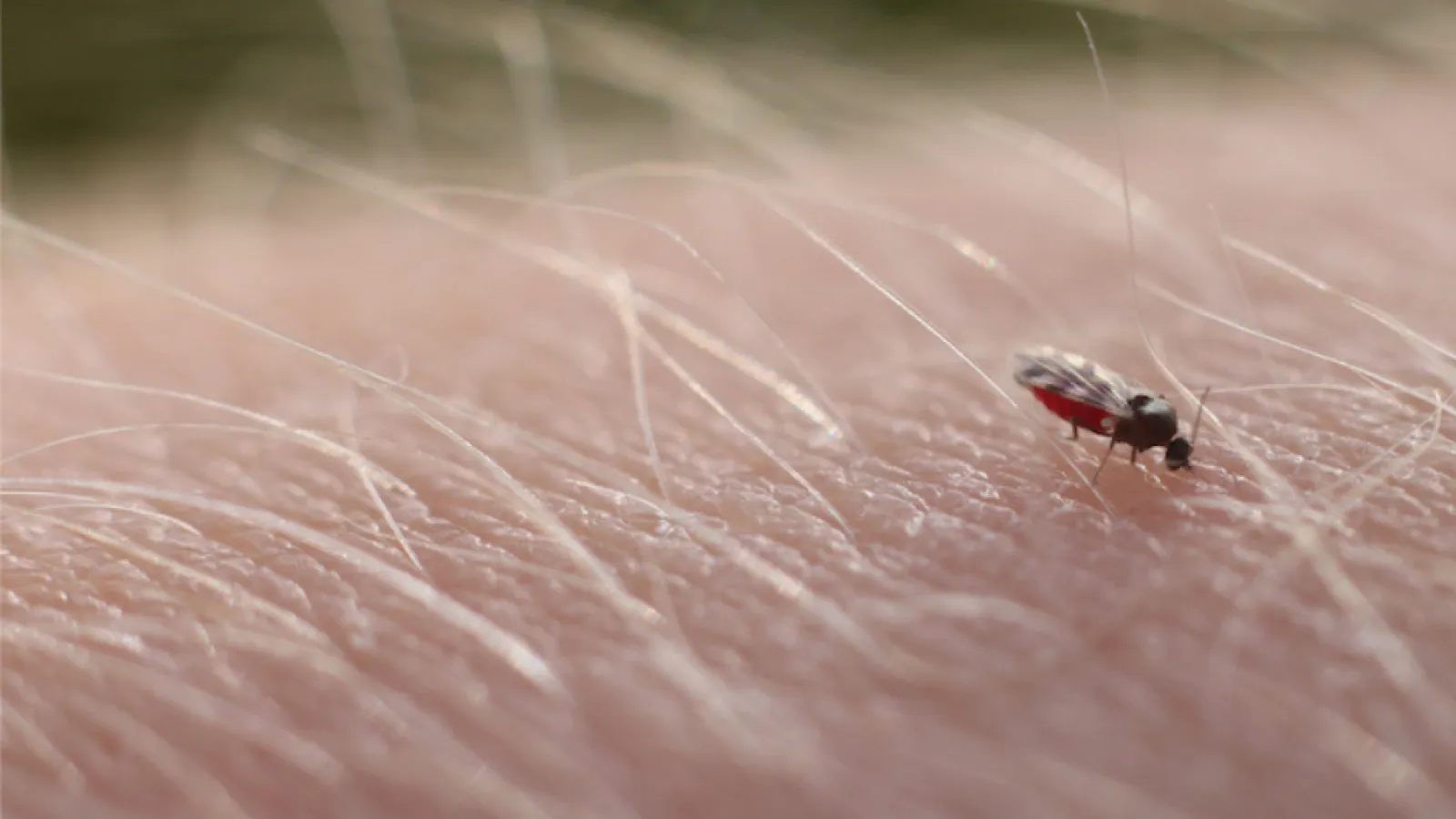
No-See-Ums
Latin Name: Culicoides spp.
What Are No-See-Ums?
No-see-ums, also called biting midges, are a part of the Ceratopogonidae family of flies and include more than 4,000 species globally. The Lowcountry's salt marshes and warm climate provide the perfect habitat for various species of no-see-ums to thrive. These tiny bugs are known to cause irritating and painful bites and are often difficult to spot, hence the name. Similar to mosquitoes, females are the only no-see-ums that bite.
The Life Cycle of No-See-Ums
A no-see-um has four stages of life: egg, larva, pupa, and adult. To produce eggs, female no-see-ums need blood. Once an adult female no-see-um has fed on a human's blood, typically during dawn or dusk, they can lay their eggs in moist settings such as damp soil, swamps, or salt marshes. These settings are crucial since larvae require moisture for development. The larva stage can last two weeks to one year, depending on the environment in which they are developing. Following the larva stage, the pupa stage lasts about two to three days. Adult no-see-ums can live for two to seven weeks.
Where Are No-See-Ums Found?
No-see-ums are typically found in warm-weather climates and near formations of water. This includes streams, lakes, ponds, marshes, and other slow or still-moving water cavities. No-see-ums can be found in many parts of North America but are commonly found in North Carolina, South Carolina, Georgia, Florida, the Texas Gulf Coast, and the San Francisco Bay area. No-see-ums require moist substrates to lay their eggs and to develop larvae; therefore, regions with accommodating climates can serve as excellent places for no-see-ums.
If you have noticed a bite on your skin but couldn't find the culprit, you probably have no-see-ums, and it may be time for quarterly pest control. Addressing any standing water, including emptying trash bins and buckets that may have collected rainwater or other liquids on your property, is one way to help reduce your no-see-ums problem. However, the best solution to your no-see-um problem is a yard treatment. Contact Palmetto Exterminators to speak with a professional and schedule your quarterly pest control today!